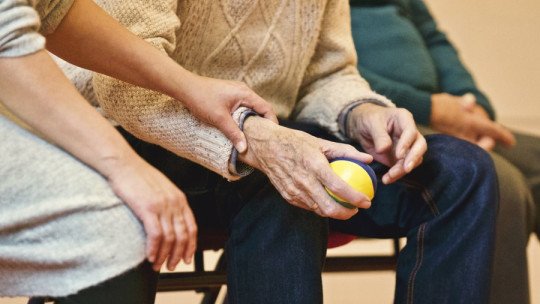
Friendship is one of the most significant and valuable relational and emotional forms in a person’s life. Beyond family ties and romantic relationships, Friends play a crucial role in our emotional and psychological well-being. Surrounding ourselves with friends provides us with a sense of belonging and support, which generally positively impacts our health and emotional well-being; reducing stress and improving our quality of life.
Different scientific studies have shown that strong friendships are associated with better physical and emotional health and, in general, better well-being. For example, research has found that people with solid social networks have a lower risk of suffering from different types of diseases, such as cardiovascular or respiratory diseases, in addition to having a longer life expectancy.
Additionally, good friendships offer us an outside perspective that helps us see problems from different angles, making decision-making and conflict resolution easier. Friendship is also essential for personal development. Since childhood, maintaining friendships teaches us important social skills such as empathy, communication and cooperation.
Throughout life, friends act as our support systems, helping us navigate challenges and greatly celebrating our successes. However, in this article we will reflect on the impact that the loss of friendships has on our emotions and well-being. It is important to reflect on this influence and on the cases in which losing friends can be beneficial.
Common reasons for losing friends
Losing friendships is a common experience in the lives of all people, and it can be determined by different and diverse reasons throughout our journey. In that section, we will explore some of the main reasons for the breakdown of these types of relationships.
1. Change of interests and life situations
One of the most frequent causes is a change in interests and life circumstances. As people grow and evolve, their priorities and hobbies can change, which can lead to a disconnection with friends who once shared similar interests. For example, Starting a new career, moving to a new city, or starting a family are significant changes that can affect friendships.
2. Conflicts and misunderstandings
Another common reason for losing friends is conflicts and misunderstandings. Differences in opinion, values or expectations can cause tensions and disagreements. If these conflicts are not properly addressed, they can lead to irreparable rifts. Lack of effective communication and inability to resolve disputes can erode the trust and affection that underpin a friendship.
3. Betrayal or loss of trust
Betrayal or loss of trust can also be a major cause. Acts such as infidelity, deception, or lack of support at crucial moments can break the foundation of a friendship. Trust is an essential component in any relationship, and once it is lost, it can be extremely difficult to regain.
4. Toxic friendships
Additionally, toxic friendships, where one or both parties experience Harmful behaviors, such as manipulation, control, or emotional abuse, can lead to the need to distance oneself to protect one’s own well-being. In such cases, distancing yourself from these relationships is a necessary measure to maintain mental and emotional health.
Positive perspectives on losing friends
Although losing friends can be painful and challenging, it can also bring with it a host of positive perspectives and significant personal growth opportunities. Here we explore some of the beneficial aspects of this process.
1. Personal growth and self-assessment
First, losing friends can foster personal growth and self-evaluation. Reflecting on the circumstances that led to the loss of the friendship can offer an invaluable opportunity to examine our own actions, values, and behaviors. This self-analysis can lead to a greater understanding of ourselves and deeper personal development.
2. Eliminate unhealthy relationships
Additionally, the loss of friends can act as a natural filter to eliminate toxic or unhealthy relationships. Sometimes, Friendships can become an emotional burden or an obstacle to our general well-being. By stepping away from these relationships, we free up space and energy to cultivate more positive and nurturing friendships that truly support and grow us.
3. Expansion of social networks
Losing friends can also be an opportunity to expand our social network and meet new people. As we move through different stages of life, it’s natural for our social circles to evolve. Opening up to new friendships exposes us to different perspectives, experiences, and learning opportunities. These new connections can enrich our lives in ways we couldn’t have imagined with our previous friendships.
4. Emotional resilience
Additionally, the ability to overcome the loss of friends strengthens our emotional resilience. Learning to handle change and adversity makes us stronger and better prepares us to face future challenges. This process of adaptation and recovery can improve our ability to maintain healthier, more satisfying relationships in the future.
Cases in which losing friends is negative
Although, as we have reviewed previously, there are various positive aspects to the process of losing friends, there are also situations where this loss can have a significant negative impact on our emotional and social life.
1. Emotional impact
One of the most common adverse effects is the profound emotional impact that can result from the loss of a close friendship. Friendships can represent a strong emotional bond, and losing them can lead to feelings of sadness, loneliness, and hopelessness. These feelings can be intensified if the loss occurs due to painful circumstances such as betrayal or lack of support during difficult times.
2. Social isolation
Additionally, the loss of close friends can lead to a feeling of social isolation. Friendships provide a sense of belonging and connection that is essential for our mental and emotional health. Losing friends can result in a feeling of being disconnected or isolated from others, which can negatively affect our self-esteem and overall well-being.
3. Loss of support
Another negative aspect is the loss of emotional and social support. Friends often act as a support system during times of stress, personal difficulties, or major life transitions. Without these supportive friends, we can face difficult situations in more lonely and challenging ways.
4. Implications on mental health
Additionally, losing friends can have implications for our mental health. Studies have shown that people with weaker social networks are at higher risk of depression, anxiety, and other mental health problems. The lack of close friends with whom to share experiences, worries and joys can contribute to a negative emotional state and greater stress in general.
How to handle losing friends
Coping with the loss of friends can be an emotionally challenging process, but there are effective strategies that can help you handle these types of situations in a healthy way:
1. Feel and process emotions
First, it is important to allow yourself to feel and process the emotions associated with the loss. This includes accepting feelings of sadness, disappointment, or even anger. Allowing yourself to experience these emotions appropriately can facilitate the grieving process and adaptation to the new situation.
2. Seek social support
Secondly, seeking support from other people close to you is crucial. Family members, other friends, or even professionals can provide a safe space to talk about feelings and receive comfort and guidance. Sharing the experience with someone you trust can ease the emotional burden and help you gain perspective.
3. Focus on self-care
Additionally, focusing on self-care is essential. Maintaining healthy habits such as exercising regularly, getting enough sleep, and eating right can strengthen emotional resilience and improve overall mood.
4. Self-care activities
Likewise, spending time on activities that generate personal satisfaction and well-being can help take your mind off the loss and foster positive feelings. Engaging in hobbies, social activities, or relaxation practices can be beneficial for emotional balance.
5. Learn from experience
Finally, consider learning from experience. Reflecting on what has been learned from the lost friendship and how this can contribute to personal growth can be a constructive way of coping.
Conclusions
In conclusion, the loss of friends is a natural and multifaceted process that can have both positive and negative aspects in our lives. While it can represent an opportunity for personal growth, self-evaluation, and elimination of toxic relationships, it also comes with significant emotional challenges such as grief, loneliness, and loss of social support. It is crucial to recognize the importance of friendships in our emotional well-being and seek to manage loss in a healthy way. Allowing yourself to feel and process emotions, seeking support from others, practicing self-care, and learning from the experience are essential steps in overcoming this type of loss. In the end, cultivating and maintaining genuine and nurturing friendships is an invaluable investment in our long-term happiness and mental health.








